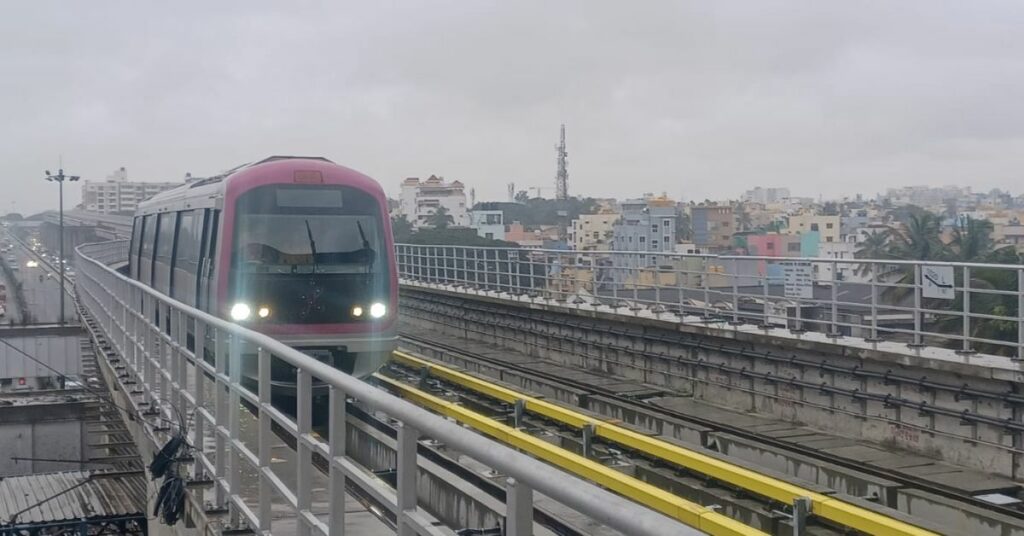A controversy has erupted in Karnataka’s bustling capital city, Bengaluru, as the government has proposed to rename the city’s Metro Rail network. The proposal suggests renaming “Namma Metro” after the revered 12th-century social reformer, Basaveshwara.
While some see the proposal as an honorable homage, many residents of Bengaluru argue that the change would erase a name that holds emotional significance. This dispute opens a Pandora’s box of issues, from identity politics to the government’s focus on infrastructural development.
Namma Metro should be named after Basaveshwara: MB Patil@MBPatil pic.twitter.com/y48fOcl5lS
— ChristinMathewPhilip (@ChristinMP_) October 27, 2023
Emotional Resonance of “Namma”
“Namma” is not just a title; for many residents of Bengaluru, it’s a term that tugs at the heartstrings. In Kannada, “Namma” translates to “our,” encapsulating a sense of ownership and community among Bengalureans. Namma Metro is viewed as more than a transport system; it’s a part of the city’s social fabric, a thread that connects its diverse populace. The emotional weight behind this name has led to a strong resistance against its renaming.
On Friday, Industries Minister M B Patil said that there are demands to rename Namma Metro after 12th century social reformer Basaveshwara . He said the issue will be discussed with Chief Minister @siddaramaiah #NammaMetro #bmrcl pic.twitter.com/987j1jTluI
— Suchith Kidiyoor (@Suchithkidiyoor) October 27, 2023
The Counterargument: In Honor of Basaveshwara
Advocates of the name change argue that naming the metro after Basaveshwara would be a fitting tribute to a significant historical figure. This notion is not new to Bengaluru; the city’s Kempegowda International Airport is named after Kempegowda, the founder of Bengaluru. However, the concept has not gained much traction, especially when weighed against the public’s emotional connection with the existing name.
A Matter of Priorities: Infrastructure Over Renaming
The current uproar has also led to questioning the government’s priorities. At a time when Bengaluru grapples with burgeoning population density and transport bottlenecks, many argue that the focus should be on infrastructure upgrades. Expanding the metro network, adding more coaches, and opening new lines to decongest traffic during peak hours are cited as more pressing concerns.
Public Opinion and Corporate Interests
Interestingly, the Bangalore Metro Rail Corporation Limited (BMRCL) allows companies to include their names as prefixes if they invest in station construction. However, this commercial aspect hasn’t led to overarching name changes. Furthermore, any renaming has to receive consent from the central government, emphasizing the multifaceted layers of decision-making involved.
Read more articles
- Man lashes out at a motorcyclist on Old Madras Road in Bengaluru!!!
- Bengaluru News: Drunk Woman Fights Police Over Church Street Parking!!!
The Road Ahead
The controversy over renaming Namma Metro brings to the forefront several issues, from civic priorities to identity politics. As Bengaluru’s Metro network enters its 13th year, with a 74 km operational reach, there’s a call for the government to focus on completing projects like the Bengaluru suburban rail on time.
With multiple layers of government involved, only time will tell if the name “Namma Metro” will continue to grace the city’s lifeline or if it will be replaced, perhaps undermining a part of Bengaluru’s identity in the process.
Names have power; they carry the weight of history, identity, and emotional resonance. The Namma Metro renaming controversy isn’t just about swapping out a title; it’s a complex interplay of public sentiment, governmental priorities, and the question of how best to honor a city’s history and its people.
Whatever the outcome, it’s clear that Bengalureans are deeply invested in the future of their city, urging for focus on tangible development over symbolic name changes.

